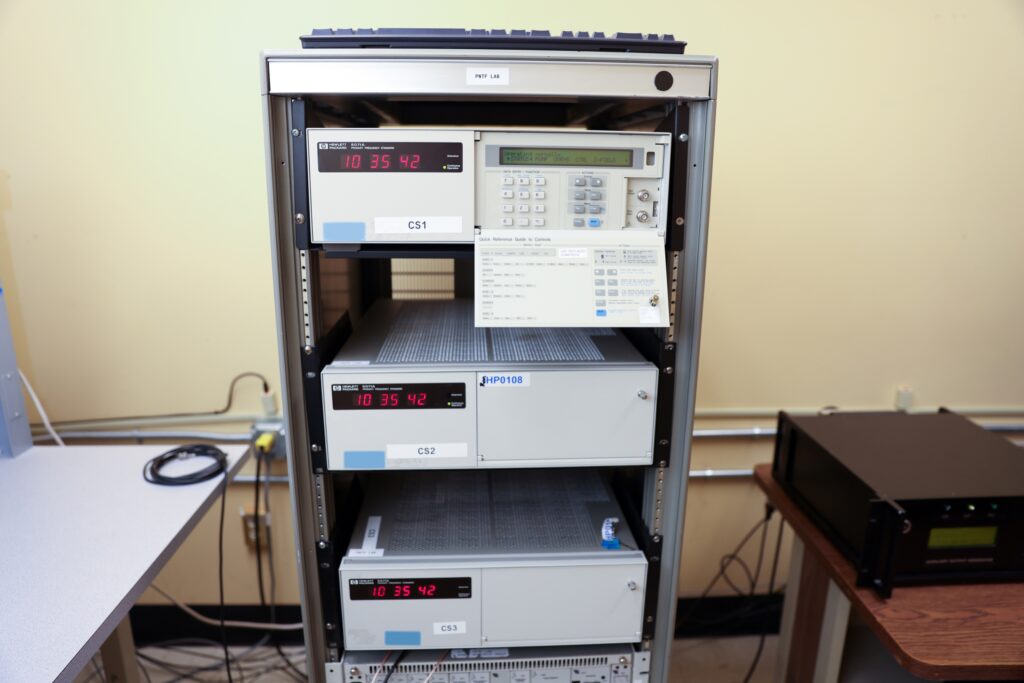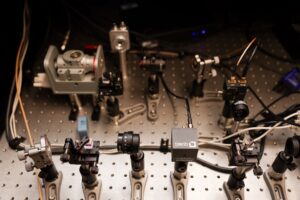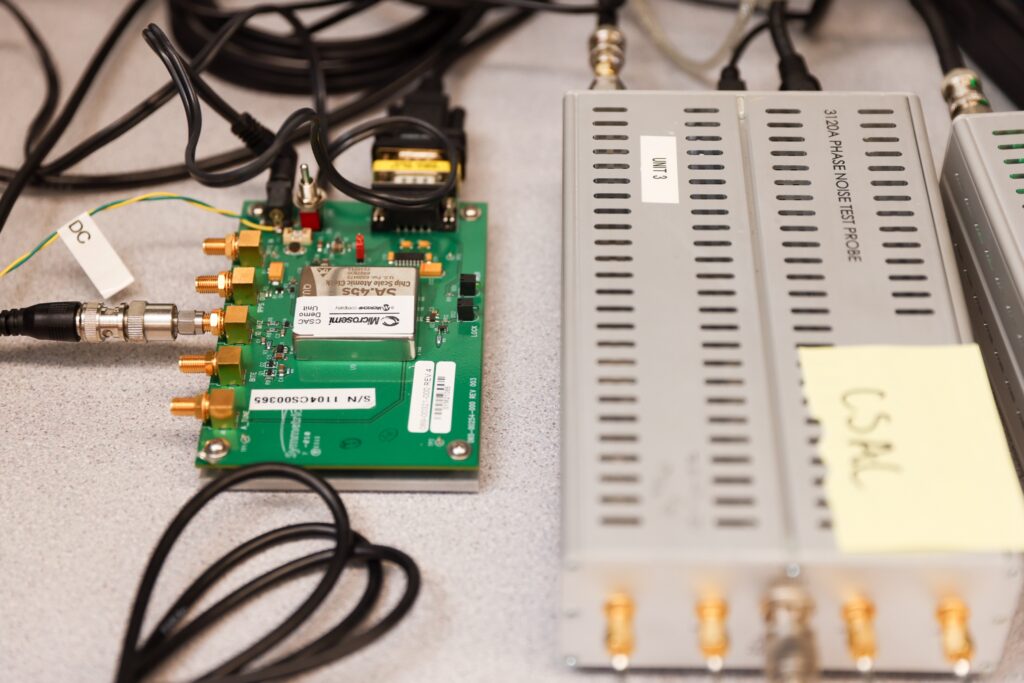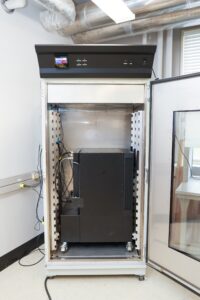The Precision Timing and Quantum Metrology labs consist of Cesium and Hydrogen MASER atomic clocks, miniature and chip-scale atomic clocks, timescale apparatus, GNSS antennas and receivers, phase noise measurement systems, time synchronization equipment, lasers, microwave & optical cavities, and optical components.

Our faculty and their current research interests are:
Dr. Thejesh N. Bandi is an associate professor and NIST associate at the Time and Frequency Division. Dr. Bandi is the Principal Investigator of the Precision Timing, Navigation and Quantum Metrology research Lab and the technical director of the ACCEPT program. His research interests span from basic atomic and ion spectroscopy to its novel implementation methods with the atomic and optical space clocks; metrological studies; time scales and synchronization schemes; and Artificial Intelligence (AI) novel methods for time and frequency metrology and to build safe methods of using Global Navigation Satellite System (GNSS) including the novel methods for alternate PNT. Dr. Bandi is also active in training the next-generation skilled manpower for the sustenance and growth of the PNT field. Dr. Bandi has built a first of its kind course in Precision Timing and Quantum Metrology to enable researchers in STEM fields for gaining the required knowledge towards a career in Precision Timing industry, academia, and the Government metrology and timing labs.

Dr. Adam J. Hauser is an associate professor and the Executive Director of the ACCEPT program. Dr. Hauser has been instrumental in driving the Precision Time and Frequency basic infrastructure at the University of Alabama since 2019, including the efforts of the EPA with USNO. He has gathered elite board members to the ACCEPT program from various institutions, industries, and Government organizations around the United States. A platform well set for the students towards exciting placements in Precision Timing and Frequency. His research interests in Precision Timing are time and frequency synchronization.


Dr. Patrick R. LeClair is the professor and department chair actively involved with the Precision Timing research and training activities. The lab spaces and infrastructure for the Precision Timing research, including the setting up of the thermally isolated rooms for the inhouse timescale has been his contributions. Dr. LeClair has built an ultra-low-phase-noise measurement setup which can characterize the low-noise oscillators and atomic clocks. He is a Co-PI in the ACCEPT program for training the graduate level students for the Precision Timing industry. His research interests in Precision Timing are noise characterization methods for the oscillators and clocks, including the electronics for synchronization and data acquisition methods.
Dr. Sergei V. Gleyzer is an associate professor and an active collaborator. With his extensive expertise in Machine Learning and Artificial Intelligence, Dr. Gleyzer has been involved with the application of ML/AI algorithms for research in Precision Timing and Quantum Technology. He is a Co-PI in the ACCEPT program. His research interests are to apply machine learning and artificial intelligence methods in Precision Timing and Quantum Technologies.